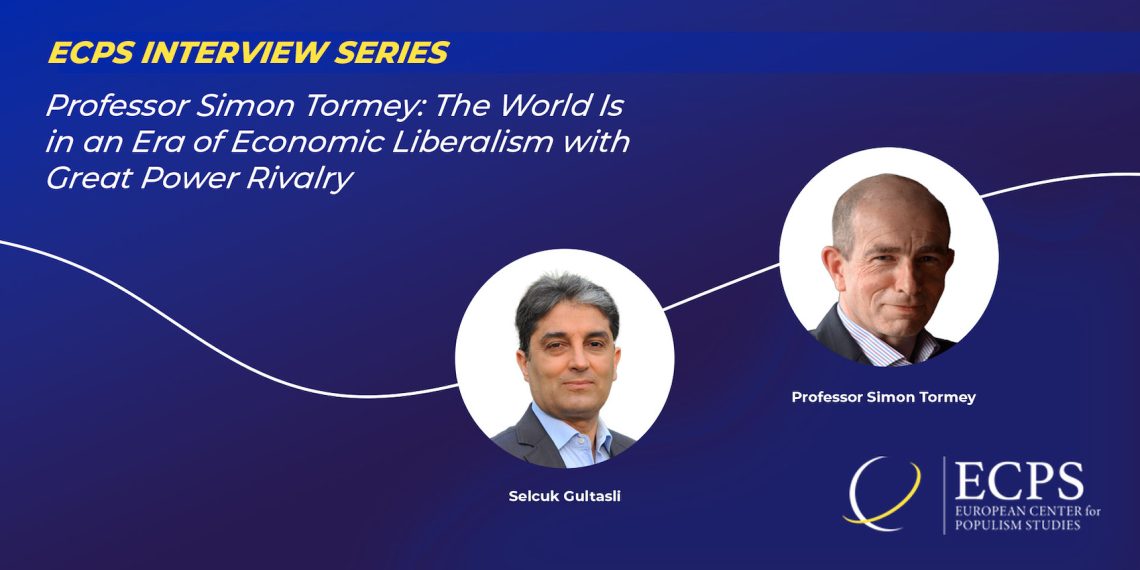Professor Simon Tormey stated that great power rivalry is more significant than any new ideology, indicating a shift away from globalization, which suggested diminishing differences between countries. Tormey highlighted that nationalist and nativist power struggles are likely to shape political outcomes for at least the next two decades. He noted the reemergence of great power rivalry, alongside economic interconnectedness and trends of de-globalization and decoupling. Tormey predicted continued regional conflicts and the persistence of populism without evolving into a new form of neo-populism.
Interview by Selcuk Gultasli
In an interview with the European Center for Populism Studies (ECPS) on Monday, Professor Simon Tormey, a political theorist and the Executive Dean of Arts and Education at Deakin University in Australia, discussed the complex dynamics shaping the current global political landscape. Professor Tormey offered a deep dive into what he describes as an era characterized by economic liberalism intertwined with great power rivalry.
"Great power rivalry is probably more important than any neologism or new ideology," stated Professor Tormey, highlighting the significant geopolitical shifts that have overshadowed the once-dominant narrative of globalization. He pointed out that we are witnessing a retreat from the idea that the differences between countries are becoming less significant than their similarities. Instead; nativist, nationalist great power rivalries are reemerging and are likely to dictate political outcomes for the next 15-20 years.
The interview covered various topics, including the role of populism in modern democracies. Professor Tormey explained that populism, whether from the right or left, often arises in response to crises. "We are in an era of poly-crisis," he noted, referring to the simultaneous challenges of economic turmoil, climate emergencies, geopolitical conflicts, and social instability. These conditions create fertile ground for populist movements that seek to undermine trust in ruling elites and offer radical solutions.
Despite the rise of populism, Professor Tormey argued that the fundamental structures of capitalism and economic liberalism remain robust. "Neoliberalism is more entrenched than this description suggests. The belief in the market, capitalism, and the ability of people to invest in various countries is intrinsic to capitalist modernity," he asserted.
On the topic of migration and social cohesion, Professor Tormey acknowledged the concerns of right-wing populists but emphasized the benefits of multiculturalism. He pointed out that successful multicultural societies, such as the US, Canada, and Australia, enrich democratic life. However, he also recognized the need for a balanced approach to immigration, as seen in the ongoing debates in the UK, the Netherlands and Australia.
Reflecting on the future, Professor Tormey underscored the importance of democratic engagement and innovation. He believes that democracy must adapt to include both traditional institutions and new forms of participation driven by technological advances. "We need both established institutions and the energy of street protests and new forms of political participation," he concluded.
This insightful interview with Professor Simon Tormey offers a comprehensive overview of the current state of global politics, the challenges of populism and the enduring influence of economic liberalism and great power rivalry.


